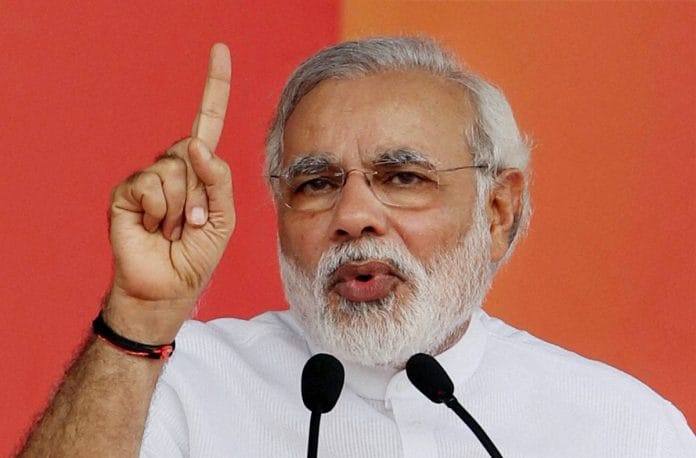The sudden announcement by the ruling BJP government has left the opposition clueless.
The Narendra Modi government’s move to introduce 10 per cent reservation for economically disadvantaged upper castes in higher education and government jobs will potentially redefine the contours of affirmative action in India.
Advantage BJP
Sabka Saath, Sabka Vikas can be a reality if the present government is successful in giving this move a constitutional sanction. It requires immense amount of political will and courage to float an idea that is expected to have major electoral ramifications.
The ruling Bharatiya Janata Party (BJP) is set to benefit from this move. In an attempt to placate the traditional stronghold of the party, the government has taken a much broader and comprehensive approach on reservation. Because, in the political history of independent India, reservation was never envisioned as a tool to empower the disadvantaged on the basis of economic status. The policy of affirmative action in the Constitution was envisaged to bring prestige and repute to people who were historically denied a life of dignity.
Also read: Modi govt’s 10 per cent quota for upper caste poor doesn’t stand the test of Constitution
No harm to Dalits
Much of the analysis on the issue of reservation to ‘weaker’ upper castes is still premature and speculative in nature. Social interactions have become extremely dynamic these days with the advent of digital media. Dalit organisations are still contemplating on the issue and have been ambivalent in their stance.
The trickle-down effect of this move will not harm the Dalits as reports say that the 10 per cent reservation would be over and above the earmarked quota for Dalits, tribals and other backward classes.
A listless opposition
The sudden announcement by the ruling BJP government has left the opposition clueless. It is precisely moments like these when the opposition misses the precision of a leader like Lalu Prasad Yadav. Lalu Prasad singlehandedly reversed the 2015 assembly election trends in Bihar by making it a forward versus backward battle, thanks to his firm grasp on caste issues. His son Tejashwi Yadav, in contrast, was seen posing random questions without taking a definitive stand on the issue.
Also read: Why caste groups want reservations but also oppose them in India
Correcting a wrong
If we take a closer look at the history of granting reservation, we will realise that the upper castes had somewhat reconciled to the idea of reservation to Dalits and tribal communities. Problems emerged following the findings of the Mandal commission, which earmarked 27 per cent quota for other backward classes. Castes in the OBC segment were traditionally rich and belonged to land-holding communities like Yadavs in Bihar and Marathas in Maharashtra.
The present move by the Narendra Modi government to provide reservation to ‘weaker’ upper castes is an attempt to correct this historic wrong by fundamentally rethinking the principles and nature of social justice in India.
Also read: Five reasons why the BJP’s upper-caste quota gambit could backfire
Ambedkar on depressed classes
It was none other than B.R. Ambedkar who in his definition of ‘Depressed Classes’, a term largely used for untouchables, included upper castes too. In a speech delivered in Marathi to social workers on 9 March 1924, he said: “I would certainly not limit the use of the power of my intellect to my family and my caste. I will render them to the benefit of entire Depressed Classes, to help them build their social movement and struggle. I have been thinking of numerous schemes. If they are successful, then both the untouchable as well as the upper caste would benefit.” (Narendra Jadhav, Ambedkar Speaks, Vol. I)
Ambedkar is revered by Dalits, but unfortunately his intellectual appeal has been restricted to just one section of society. The man was clearly ahead of his times in vision and imagination.
Once the government’s proposal for reservation is presented before Parliament for discussion, more of its content would be available for mass consumption and public scrutiny.
The author is a Fellow at India Foundation and Assistant Professor, Patna University.







The author can’t even quote a historical figure correctly. B.R. Ambedkar is not talking about benefits of reservations to upper caste but “benefits flowing from power of his intellect” to upper caste.